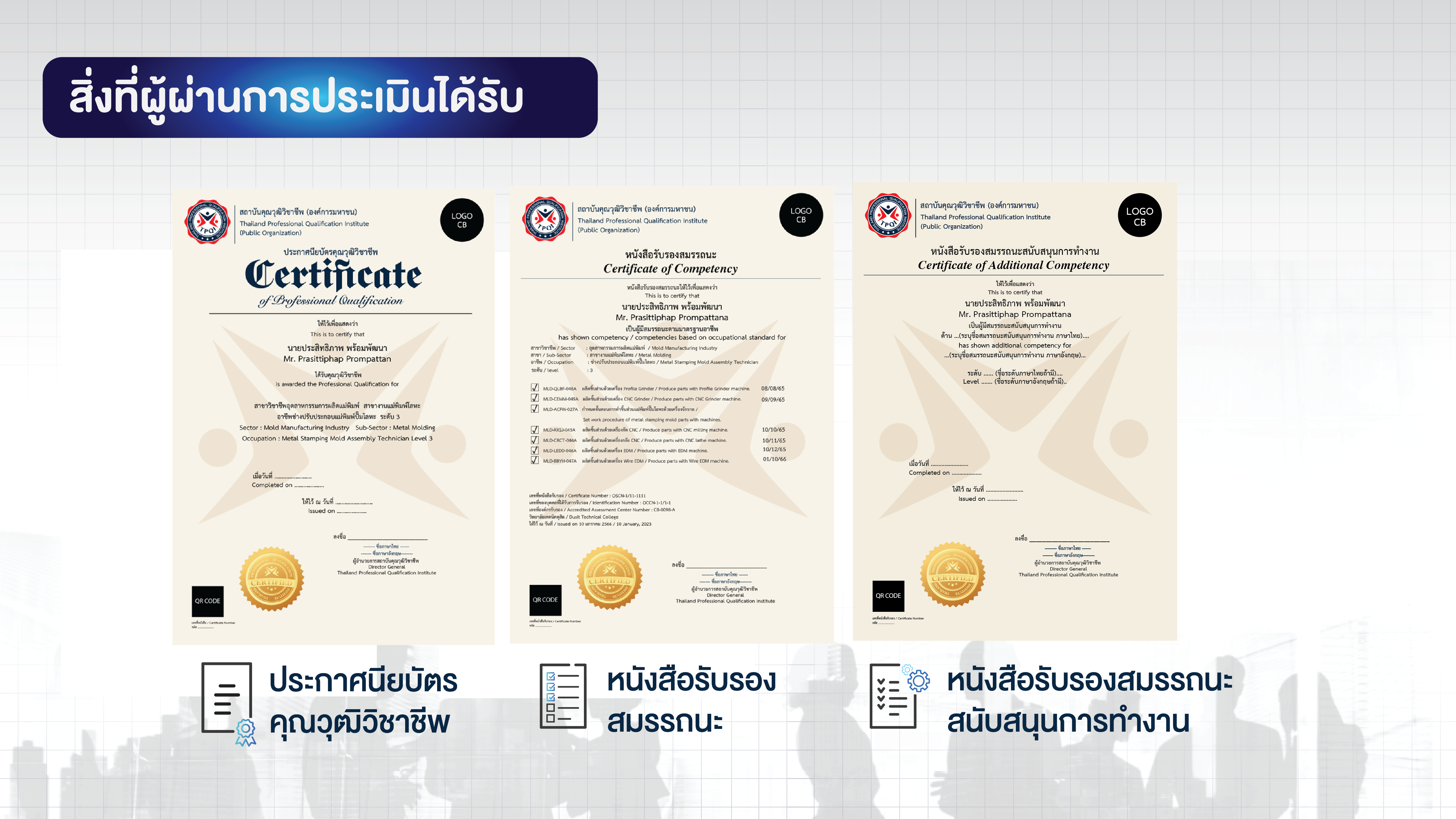This website utilizes cookies to remember visitor behavior, preference, and setting in order to analyze and display information and advertisement adjusted to visitor’s preference and interest, to improve visitor’s experience for a better performance when visiting our website, and provide other services of Thailand Professional Qualification Institute (Public Organization) (“the Institute”)’s website
In the event that visitor continue using this website, the Institute shall utilize cookies necessary for the performance of this website. The Institute shall only utilize other type of cookies which the visitor give consent to do so.
In this Policy, the word “Cookies” means cookies and other technology in the same manner which is governed by “Personal Data Protection Act” on the protection of privacy in electronic communications. Cookies will be stored on visitor’s computer or devices but will not be able to be used to identify visitor. The Institute may assign third-party to manage cookies or analyze the remembered data for the Institute such as [please provide name of processor]
The Institute collects following type of cookies (visitor may learn the definition of each cookie in the later part of this policy)
- Necessary cookies for website performance:
|
Name
|
Cookie’s service(s)
|
Cookie’s purpose(s)
|
Retention period
|
|
|
|
|
|
|
Name
|
Cookie’s service(s)
|
Cookie’s purpose(s)
|
Retention period
|
|
|
|
|
|
- Enhancing website performance cookies:
|
Name
|
Cookie’s service(s)
|
Cookie’s purpose(s)
|
Retention period
|
|
|
|
|
|
- Information adjusting cookies:
|
Name
|
Cookie’s service(s)
|
Cookie’s purpose(s)
|
Retention period
|
|
|
|
|
|
|
Name
|
Cookie’s service(s)
|
Cookie’s purpose(s)
|
Retention period
|
|
|
|
|
|
|
Name
|
Cookie’s service(s)
|
Cookie’s purpose(s)
|
Retention period
|
|
|
|
|
|
The Institute’s and third-party’s cookies
The Institute’s cookies are set by the website domain https://www.tpqi.go.th/. In general, these cookies are commonly used to store language setting preferences and the location selected by the visitor to assist with displaying basic functionality of the website.
Third Party Cookies are set and managed by a separate domains or owners or other service providers. These cookies may be necessary for displaying specific forms or templates on the website, such as advertising purposes off-site the Institute’s website.
If visitor do not want cookies to collect data, visitor may change the setting or setting tab of internet browser. However, if visitor visit the Institute’s website again without changing the setting, visitor’s device will be automatically accepting the previous cookies setting.
How to Refuse and Delete cookies
Visitor can choose to decline or block all cookies or certain types of cookies that the Institute’s website has set for visitor by clicking the Cookies Setting button on our website. Visitor can change preferences on the Institute’s website and/or the websites of third-party service providers as designated. Please be informed that most web browsers accept cookies automatically, therefore, if visitor do not wish to use them, visitor may need to constantly block or delete in the browser setting. If visitor choose to turn off these cookies, visitor will still be able to visit our website. However, some features or services of the on the website may not be accurate or may be compromised. Visitor can see more details on how to decline or delete cookies as well as more general information about cookies, by visiting the following websites:
Website Cookies: www.allaboutcookies.org/manage-cookies
Mobile Cookies: www.allaboutcookies.org/mobile/index.html
Visitor can find out more about cookies on the web browser visitor are using, including how to see what cookies have been set and how to manage and delete them in the following links:
Google Chrome
Firefox
Internet Explorer
Safari
Safari for ios
Chrome for android
Chrome for ios
Amendment to Our Cookies Policy
This Cookies Policy shall be improved or amended to reflect any material changes to comply with the amending laws and regulations. Therefore, we recommend that visitor review this Policy on a frequent basis and stay up to date on the latest edition.













